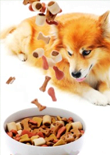
Dog Training Treats, The Cornerstone of Positive Dog Training!
By Sally Gutteridge | Food & Treats , Posts
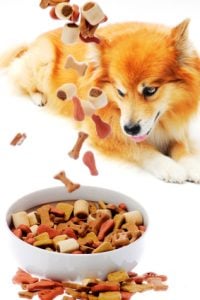 Positive dog training is reward based and motivational. Training your dog in a positive manner will ensure that the two of you have a great relationship. Communication is increased immensely by reward based training, and reinforcement alongside reward is a really enjoyable way to teach your dog.
Positive dog training is reward based and motivational. Training your dog in a positive manner will ensure that the two of you have a great relationship. Communication is increased immensely by reward based training, and reinforcement alongside reward is a really enjoyable way to teach your dog.
Some dogs have little interest in training treats. The toy motivated dog will work nicely for a tennis ball or tug on a toy rope. Most dogs however will become quickly and easily motivated by a whiff of smelly cheese or liver sausage.
Dog training treats – motivation for reward
By introducing dog training treats into your training sessions you will see the difference in your dog immediately. He will become motivated and want to earn his reward. He will be alert to the potential result of his behavior and responses. Your dog will perform knowing that a reward is possible.
It is a similar response to the human pay increase.
Pet shops sell many varieties of dog training treats. Some catered to the dog’s great sense of smell. Scent of nice treats can be extremely motivational to your dog. Similar to a freshly cooked meal that will make our mouths water in anticipation. Some pet shop treats are already catered to dog training and use with the clicker.
It is not necessary to buy pet shop dog training treats. Leftover meat or cheap sandwich meat will easily get a dog switched on to learning for his reward. Small squares of cheese will present the same result and for hungrier dog’s part of their daily meal.
Working out the value of dog training treats
The best way to use treats as reward is to work out their value to your dog. Dogs, like human beings have preferences. I know a Yorkshire terrier that becomes completely manic for a lick of an empty cream tub; he prefers sweet rewards such as doggy chocolate drops. (This is a special blend of dog training treats since pure chocolate can be quite toxic to dogs.)
When you know your dog you will be able to tell if his interest is piqued by a particular treat. You can test him out with various small amounts and see which he likes the best, and then you can use the favorite for ultimate motivation.
Dog Training Treats – Optimization of effect
There is little point using the treat that your dog likes best to carry out easy tasks. Reward should reflect motivational level needed. By beginning with lowest level of reward you can gradually build to higher value dog training treats to build your dog’s motivation.
Here are some ideas for reward treats beginning with lower value treats and working to the elite and tastiest food reward.
- Carrot chunks
- Cherry tomatoes
- Daily ration of kibble
- Small dog biscuits
- Dry dog treats
- Dog chocolate drops
- Soft pet shop bought dog treats
- Cheese
- Cooked meat’s i.e. ham, sausage, hot dog sausage
- Cooked liver and liver cake
Be careful with some human food. Any chocolate that is not specifically for dogs carries a toxic ingredient that is poisonous to the canine so steer well clear of this. Also be aware that much excess food in the form of dog training treats can cause weight gain.
Size of treats
To provide an effective motivational reward dog training treats should be tiny. A taste will leave your dog wanting more. Slivers of ham just big enough for your dog to taste will be sufficient reward. Think how the first tiny half square of tasty chocolate makes you feel, much better than you feel after devouring a large block of the same treat. It is paramount that you leave your dog wanting more throughout and at the end of a training session.
If dog training treats are too big your dog will lose learning momentum whilst the takes the time to eat them. He will also tire of them quicker therefore his motivation will wane sooner.
You can utilize the value of treats during training sessions. By having a stash of mixed treats ready your dog will never know if he is getting an average treat (piece of kibble) or something really special (square of liver) By alternating reward value you will maintain the motivation of your dog.


 The German shepherd is a charming puppy. Loyal and humorous the shepherd is cute as a youngster and dignified as an adult. All puppies need socialization and basic positive learning experiences in order to grow into well rounded dogs. The German shepherd is no exception.
The German shepherd is a charming puppy. Loyal and humorous the shepherd is cute as a youngster and dignified as an adult. All puppies need socialization and basic positive learning experiences in order to grow into well rounded dogs. The German shepherd is no exception.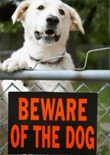
 A dog that shows signs of aggression can become a problem within a family environment; therefore any dog owner should have a basic understanding of why and how a dog can become aggressive.
A dog that shows signs of aggression can become a problem within a family environment; therefore any dog owner should have a basic understanding of why and how a dog can become aggressive.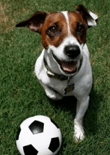
 Dog training games provide so much more than mental stimulation to your dog. They enable handler control and encourage the dog to focus. They build the relationship between you and your dog and bring the same relationship onto another level.
Dog training games provide so much more than mental stimulation to your dog. They enable handler control and encourage the dog to focus. They build the relationship between you and your dog and bring the same relationship onto another level.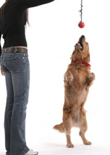
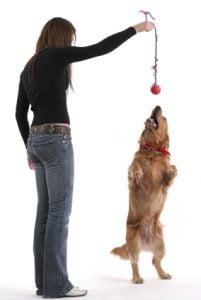 Basic dog training is not complicated. To train a dog is simply to teach him to do something. Dog training is often seen uniquely as teaching a dog to behave nicely, or do specific tricks to impress. What many people do not understand however is that is just as easy, if not easier, to train a dog to misbehave.
Basic dog training is not complicated. To train a dog is simply to teach him to do something. Dog training is often seen uniquely as teaching a dog to behave nicely, or do specific tricks to impress. What many people do not understand however is that is just as easy, if not easier, to train a dog to misbehave.
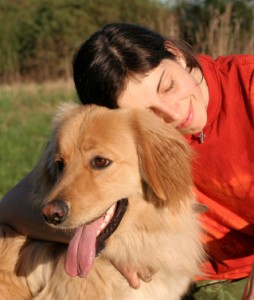 What is positive dog training? Is there such a thing as a positive or negative dog training?
What is positive dog training? Is there such a thing as a positive or negative dog training?
 A saying used daily in many circles is “you can’t teach old dog’s new tricks”. This is simply not true. A dog of any age will learn when motivation and circumstance permits. A human being can obtain a higher degree whilst simultaneously drawing a pension. A middle aged or elderly dog can learn equally well.
A saying used daily in many circles is “you can’t teach old dog’s new tricks”. This is simply not true. A dog of any age will learn when motivation and circumstance permits. A human being can obtain a higher degree whilst simultaneously drawing a pension. A middle aged or elderly dog can learn equally well.
 The internet has opened up the world to us in so many ways. People can work alongside work colleagues regardless of location. Social networking has become a huge part of our lives and enables us to stay in touch easily and effectively. We can have face to face phone calls with friends and family on the other side of the globe and obtain a university degree and other top level qualifications by distance learning.
The internet has opened up the world to us in so many ways. People can work alongside work colleagues regardless of location. Social networking has become a huge part of our lives and enables us to stay in touch easily and effectively. We can have face to face phone calls with friends and family on the other side of the globe and obtain a university degree and other top level qualifications by distance learning.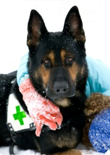
 The Search and rescue dog team is an invaluable resource. Often working on a voluntary basis, handlers train their dog to find people that are lost, injured or at risk.
The Search and rescue dog team is an invaluable resource. Often working on a voluntary basis, handlers train their dog to find people that are lost, injured or at risk.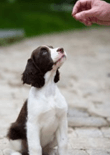
 Owning your first dog is an educational and enlightening experience. Each and every dog that you live with will teach you something new about the canine species.
Owning your first dog is an educational and enlightening experience. Each and every dog that you live with will teach you something new about the canine species.